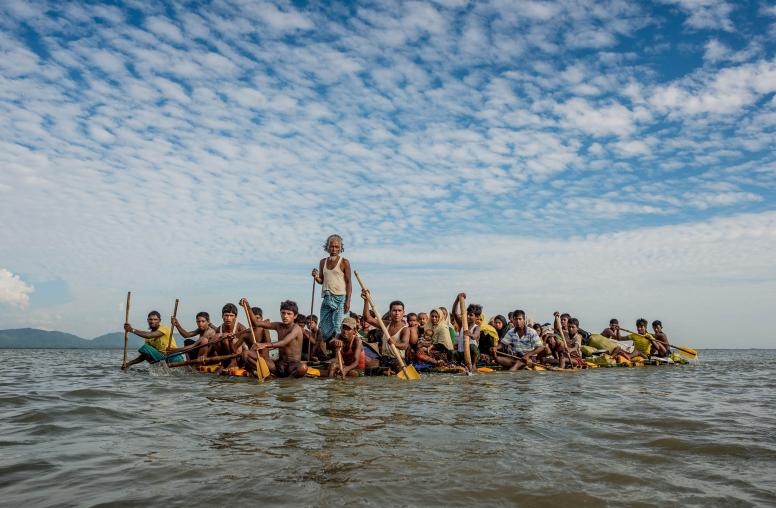Peace and Conflict in Burma
Taking Stock After a Year of Aung San Suu Kyi’s Party in Power
Read the Event CoverageAung San Suu Kyi’s party came to power in Burma in March 2016 amid high expectations, after an electoral landslide that ushered in the country’s first civilian government in more than 50 years. One year in, the U.S. Institute of Peace hosted a day of discussions focused on how her National League for Democracy (NLD) handled Burma’s social, economic and political transitions and dealt with violent conflicts and social tensions with ethnic groups in the country’s borderlands. Follow the conversation on Twitter with #USIPBurma.
Updated Agenda
9:00 – 9:30 Opening Remarks
- Nancy Lindborg, President, USIP
- Ambassador U Aung Lynn, Embassy of Myanmar
9:30 – 10:45 Panel 1: Burma’s Political and International Affairs
- Ambassador Derek Mitchell, Senior Advisor, USIP
- David Steinberg, Distinguished Professor of Asian Studies, Georgetown University
- Priscilla Clapp, Senior Advisor, USIP
- Moderator: Andrew Wilder, Vice President, Asia Center, USIP
10:45 – 11:00 Break
11:00 – 12:15 Panel 2: Conflict in the Borderlands
- Ja Nan Lahtaw, Director, Nyein (Shalom) Foundation
- Yun Sun, Senior Associate, Stimson Center
- David Mathieson, Independent Analyst
- Moderator: Vanessa Johanson, Burma Country Director, USIP
12:30 – 13:30 Lunch and Keynote Remarks: The U.S. Role in Burma’s Transition
- W. Patrick Murphy, Deputy Assistant Secretary for Southeast Asia, U.S. Department of State
13:45 – 15:00 Panel 3: Rakhine, Rohingya, and Intercommunal Violence
- Kyaw Yin Hlaing, Director, Center for Diversity and National Harmony
- Steven Ross, Project Manager, Centre for Humanitarian Dialogue
- Matthew Walton, Aung San Suu Kyi Senior Research Fellow in Modern Burmese Studies, Oxford University (via Skype)
- Moderator: David Mathieson, Independent Analyst
15.00 – 15.15 Break
15:15 – 16:45 Panel 4: Ways Forward? The Peace Process, Development and Other Challenges
- U Aung Kyi, Chair, Advisory Committee, Myanmar Peace Commission
- Paul Grove, Clerk, Senate Appropriations Subcommittee on State, Foreign Operations, and Related Programs
- Vanessa Johanson, Burma Country Director, USIP
- Moderator: Priscilla Clapp, Senior Advisor, USIP
16:45 – 17:00 Closing Remarks: Ambassador Derek Mitchell, Senior Advisor, USIP



